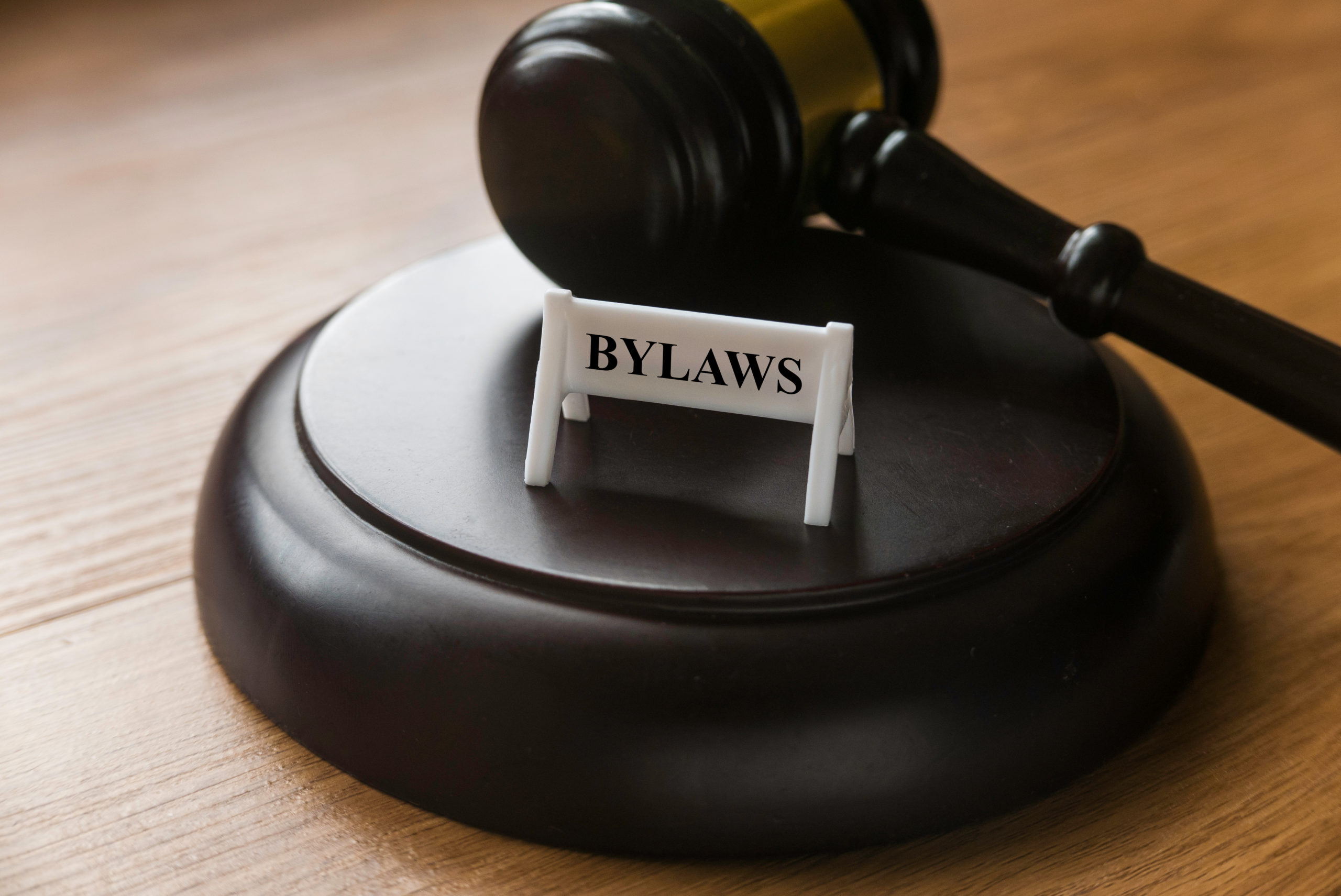Bylaws are the rules by which a corporation governs itself. Bylaws are established by the Board of Directors at the time of formation to regulate the company’s day-to-day operations and specify how issues will be handled as they arise. Simply put, they help to ensure the corporation runs smoothly and define the company’s mission.
How are Bylaws Different From Articles of Incorporation?
It’s important not to confuse bylaws with a corporation’s Articles of Incorporation. A corporation’s Articles of Incorporation must be filed with the Secretary of State. While the Articles of Incorporation contain general information about the corporation, they don’t go into detail regarding structure or operations of the corporation — these issues are addressed in a company’s bylaws.
What Do Bylaws Do?
An organization or entity should consider whether bylaws are needed and what purpose they will serve. An organization or entity should determine who will draft the bylaws, and how they will be written and approved. An organization or entity should consider that one person prepares the bylaws and is responsible for making any changes. If the bylaws are complex or lengthy, the writing tasks can easily be divided among several people.
Specifically, bylaws must contain information regarding the following:
- A variety of information about the Board of Directors
- A statement concerning the company’s purpose
- How management is structured
- Information identifying the company
- How shareholders will be notified of meetings
- How meetings are called and scheduled
- Proxy voting
- Contract and loan approvals
- Information regarding voting on shares of stock
A conflict of interest provision should be included in the bylaws or contained in a separate document. This provision can help to protect the company from any penalties that may be imposed by the Securities and Exchange Commission, the Internal Revenue Service, or other regulatory body that may be involved in the organization’s governance if that regulatory body finds that the organization provided unfair benefits to its members, directors, or others. The provision also prevents the director from having an unfair advantage as a result of their position — any director who could benefit concerning a particular issue should not vote on the matter. If a conflict arises, it should be immediately disclosed by the director.
Any rules concerning the approval of loans, contracts, stock certificates, checks, and corporate resolutions will need to be included in the bylaws, as well as financial inspections and audits of corporate records. Bylaws should have a provision regarding how they can be changed or altered. The rules should specifically state who can recommend amendments and how they will be voted on.
Obtaining Approval for Bylaws
Once the bylaws have been drafted, copies should be distributed to anyone who will have a say in approving the rules they contain. Prior to the meeting at which they will be voted upon, the bylaws should be carefully reviewed to ensure they address any questions that might arise at the approval meeting.
Before the bylaws are adopted, the organization should have a thorough discussion about whether the proposed rules are fair. Some crucial questions that arise may include those that are general in nature about the bylaws themselves and how any changes to the bylaws will be made. Concerns might also need to be addressed about specific bylaws or provisions. After any alterations have been discussed, it may be necessary to vote on the changes. In these cases, the meeting should be adjourned so that the final draft can be written.
Once the final version of the bylaws has been written, a meeting can be scheduled where a vote will take place, and members can approve or reject the bylaws. All members must be notified in advance of the meeting. Once approved, any copies of the bylaws should include the final draft approval date. Copies should be provided to members, officers, and committee chairs. Importantly, bylaws must be reviewed periodically to ensure they are up to date.
Contact a Skilled New York Business Attorney
It’s imperative to ensure bylaws are drafted well to avoid the potential for unintended consequences. It’s best to have an experienced business law attorney by your side who can guide you through the process. Providing high-quality legal services and diligent representation, Brinen & Associates is dedicated to helping clients with a wide variety of corporate matters and committed to achieving positive results. Call (212) 330-8151 or send us a message to learn more.
